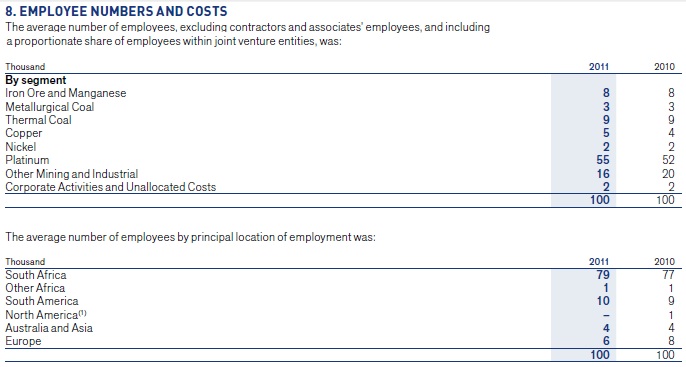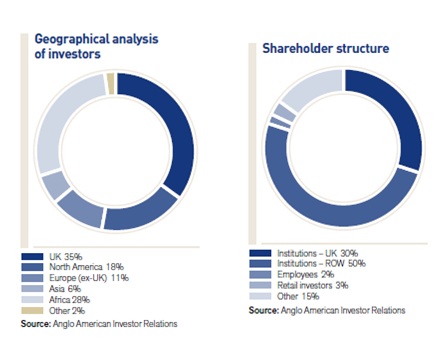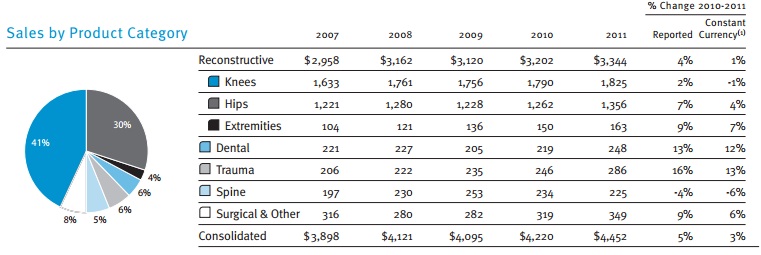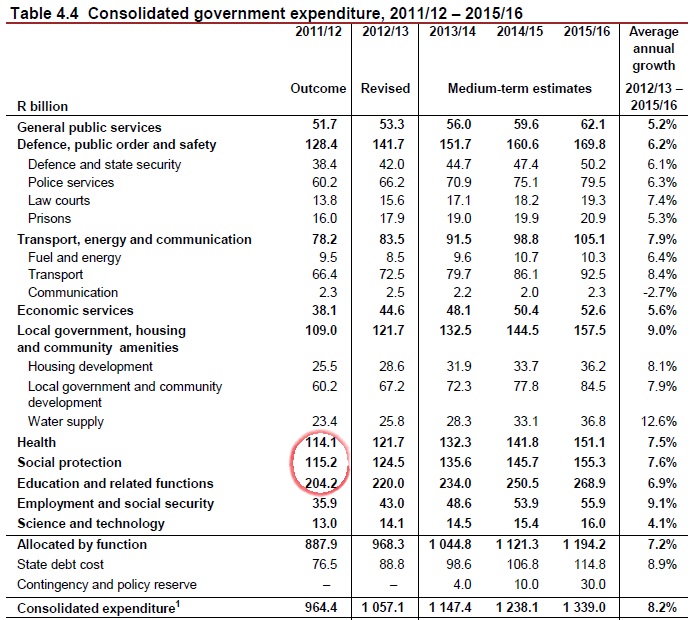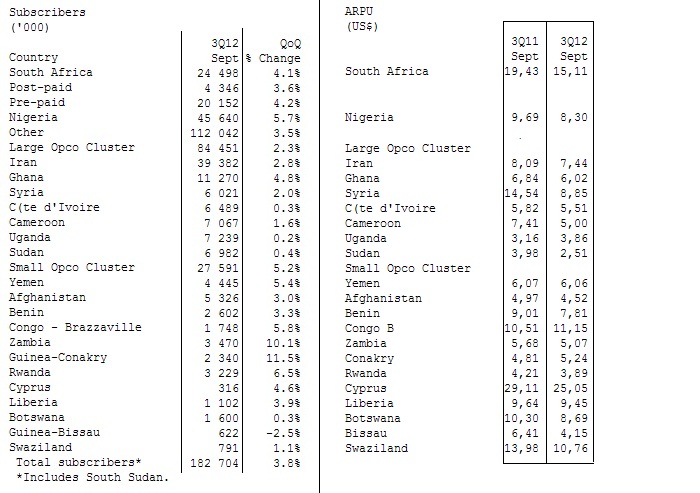The transport systems are looking a fair way off being ready again, a WSJ titled Sandy Cuts Wide Swath of Damage suggests that 8.5 million folks rely on both the subway and the bus systems in New York. That means that even though Mr. Market is opened today, many folks are going to struggle to get there. And the cost? Well, that is tough, because some suggest a range as wide as 20 to 50 billion Dollars. That is a big number and it could get bigger, simply because the urban areas that have been hit are so dense. And of course the impact on GDP could be as much as 0.5 percent. I suspect that the GDP estimate is a little too aggressive. Some folks pointed out that housing starts after claims are settled could boost the local economies. CNBC suggests insured losses could be between 5 to 15 billion Dollars, whilst economic losses could be between 10 to 50 billion Dollars.
But this start is supposed to be about the Jozi markets. It is not, simply because there was an event of epic proportions, the first time in over 120 years that the markets have been closed in New York for two days because of weather related disasters. Locally we saw markets head higher through the day, partly because of the Italian treasury getting a 5 and 10 year auction away at the cheapest cost the country has seen since May 2011. That sounds like very good news to me. In case you missed it, the most handsome prime minister to have ever lived (Berlusconi) was convicted of tax evasion on Friday I think. One Italian fellow that I follow on twitter told everyone to relax, this was not the first time that this had happened. OK, gotcha. But at the same time, he lost all his support in Sicily (c'mon, you know that you can do your Vito Corleone impersonation), which was his main base. Ah well, I am pretty sure that it is not the end for Berlusconi. Meanwhile in strong Europe, German unemployment rose, which must be worrying for the "core", but a sign of the collective pain being felt no doubt.
Markets in Jozi closed around four tenths of a percent better than the prior session. Industrials added around half a percent, general retail around one quarter of a percent. As bad as all the news is, and you would swear that the Spanish economy was contracting at 3 percent per quarter rather than the 0.3 percent contraction. I am not downplaying the severity of the situation, but I would say that we are a quarter or two away from the bottom in Spain. And the problems in Europe? They would perhaps seem like a memory for some. In 2014 perhaps.
Brait reported results for the six months to end September this morning. Brait. Registered in Malta as a European company. What? Well, Malta is tiny, but has a low corporate tax rate you see, that is why it is advantageous for companies to be "domiciled" there. Someone in my very extended family once told me that there was a connection of sorts with Malta. But you know how it goes, everyone tells everyone else that they have a connection, here check it out: Russian tradition of the Knights Hospitaller.
But Brait have nothing to do with Knights and others nobles who somehow plundered their way to titles, oops, I shouldn't have said that. Brait is a business that has transformed a lot. And when I mean a lot, I mean from a caterpillar to a butterfly. This used to be a company that talked about their private equity funds, and it was almost better to be in the funds as an investor, rather than a shareholder. In fact, if memory serves me right, the very smart management team used to have their money in the funds and not in the stock of the business. I think that has changed dramatically.
The 2012 annual report provides one with information of how the restructuring took place: "This has been a milestone year for the Group which saw a successful change in the business model from a leading traditional private equity fund manager to an investment holding company. ... During the year the Group acquired significant stakes in Pepkor, Premier Foods and Iceland Foods for a total of R6.4 billion."
Pepkor, as per their (Brait) NAV breakdown represents the 7.731 billion Rands of the 13.176 billion Rands worth of their investments, a 59 percent weighting. Premier Foods represents 10 percent of the investments, Iceland Foods 9 percent whilst the "Commercial loan to the investment team" is a whopping ten percent of the NAV too. That is basically the rump of the business, clothing and food retail to the middle to lower middle classes in South Africa, which represents 80 percent of their value. That translates to 23.01 Rands NAV, but the company seems to have rather low valuation metrics for Pepkor, Premier and Iceland Foods. That is why I think that the current share price trades at a premium to NAV, at 35 ZAR. The company reported a normalised earnings per share increase of nearly 15 percent to 240 cents. The dividend is modest.
The reason why I think that people low balled the valuations is simple, the new entity has a shareholder, Titan nominees which owns 13.65 percent of the company. That Titan nominees is none other than Christo Wiese. It is tough to find out how much of Pepkor he owns, outside of the Brait holding. See, that is a "problem" already for me. But hey, these guys have done exceptionally well. Well done to them! And still, the underlying assets and earnings still look like they trade at a discount to the rest of the retail sector, but you have to deal with the complicated structures here.
African Bank have released a trading update this morning, and I am guessing that there will be a few relieved folks around. Consensus, at least the one that I can see, suggested that earnings were expected to show around 21 percent growth. ABIL advises "... that both headline earnings and earnings for the period are expected to increase by between 17% and 19% relative to the R2 339 million reported for the 2011 financial year. Similarly, headline earnings per share and earnings per share are expected to increase by between 17% and 19% relative to the 291,0 cents per share reported for the 2011 financial year." So, rough back of the matchbox calculations suggest that ABIL will make between 340 to 346 cents per share, let us call it 343 cents. That is almost an identical second half to the first half. I suspect that the full year dividend will be the same as last year, and the year before that, 185 cents.
Which means what? Which means at roughly 29 ZAR the stock trades on a historical multiple of less than 8.5 times, on a dividend yield of 6.4 percent at these current levels. Just yesterday Byron wrote about the company and the stock price, here is a refresher: African Bank update ahead of results. This part is quite important: "That puts the stock on forward multiples of 8 (2012), 6.7 (2013) and 5.5 (2014). Historically the company has a strong dividend policy which should see yields above 8% in years to come." The stock is off 28 percent and a bit since the beginning of April. Over five years the stock is down 19 percent. Now, since 2007 African Bank have paid 10.75 ZAR in dividends, that is one of the attractions of the stock, their very high yield relative to their peers.
But that means nothing, the current price is always a reflection of future earnings. The concerns lately and the reason for the share price falling is that there is a lot of chatter out there related to unsecured lending. The company says that they have a handle on this: "ABIL continues to be actively engaged in discussions with the various regulatory and industry bodies about a range of issues to strengthen the sustainability of the credit industry. We welcome this debate and wholeheartedly support initiatives that seek to protect the consumer while enabling responsible access to credit."
There is a conference call later this afternoon, at four thirty. Why this afternoon? Well, because they have lots of offshore investors, which might explain the aggressive selling. Full year numbers will come on the 19th of November, which is in three Mondays time. Until then, I think that this number will be favourably received. The stock has had a couple of good trading days, after having a really bad time for the last six months. We are recommending that you accumulate the stock here, it sure looks cheap.
- Byron's beats
There are many reasons we have chosen BHP as our preferred commodity stock. Sasha has mentioned this a lot lately, mostly in the wake of Anglo's issues and the resignation of Cynthia Carroll. So no, we are not perma-bulls on all commodities. We have been very selective in our mix. Gas, oil, copper, iron ore, coal, potash. All these commodities are vital in the in the development of a region going from an infrastructure boom all the way to a consumption based economy.
The last one I mentioned there, potash, is one I want to focus on today. If you are unaware of what potash is, here is an explanation from wiki: "Potash is the common name for various mined and manufactured salts that contain potassium in water-soluble form. Today, potash is produced worldwide at amounts exceeding 30 million tonnes per year, mostly for use in fertilizers. Various types of fertilizer-potash thus comprise the single largest global industrial use of the element potassium."
Basically it is a vital ingredient in modern day farming. Naturally, as populations increase and farmers adopt more commercial practices, the demand for potash will increase.
Potash does not actually form part of Billiton's production line yet. Not by a long way. But they do own potentially the biggest potash mine in the world known as the Jansen mine which is based in Saskatchewan. If that name rings a bell it is because BHP were bidding for separately listed Potash corp, 2 years ago who are also based in Saskatchewan. This dominated headlines for ages as the massive $40bn bid got rejected by Canadian authorities.
Back to Jansen. I stumbled across this article headed BHP Jansen mine full steam ahead which suggests that drilling of the mine will start in 2 weeks. But there is still a lot of hard work ahead. The article interviews Tim Cutt, BHP's president of speciality products.
"The mine has just received a massive piece of German equipment known as the Herrenknecht. It will drill the hole to create the mine. While drilling is due to start in the next couple of weeks, it will take the Herrenknecht a year to reach the potash supply about one kilometre underground. Then, it will be another two to three years before potash will make it above ground. We think by the end of 2015, we should be in the ore body and starting to build the production rooms."
Wow, quite a lengthy process. So far BHP have put $2bn into this project and certainly more to come. But this should all be worth the wait for a mine that is estimated to produce 8 to 10 million tons of potash a year, comfortably the biggest in the world. The commodity currently trades at $465 per tonne. If we assumed the mine was at full production today, sales of $4.5bn would rival their Aluminium division, will comfortably overtake diamonds and manganese and will fall 25% below energy coal.
I had a glimpse at Potash Corps latest quarterly results to get a better comparison. They produced 2.1 million tonnes with gross profits of $554 million for the quarter. $1.7bn has been made for the first nine months and $2.3bn is expected for the year. These production numbers for the entire company are similar to Jansen's production aspirations. The company who gets 85% of its earnings from Potash is afforded a market cap of $35bn and a PE of around 17. This shows you how big the Jansen mine could be, how strong the margins are and it is certainly a theme we like going forward.
Crow's nest. US markets open again today, this is good news. ADP has been delayed until tomorrow. ADP of course is the precursor to non-farm payrolls on Friday. Fun!! So far US futures are higher, our market is sniffing at an all time high reached a matter of weeks ago.
Sasha Naryshkine and Byron Lotter
Follow Sasha and Byron on Twitter
011 022 5440
